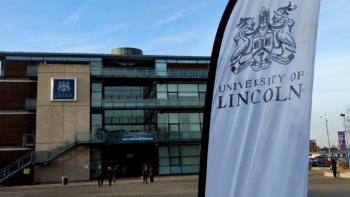A history professor at the University of Lincoln opposes calls to pardon the suffragettes, as the UK celebrates a century since women were given the right to vote.
The news comes after Home Secretary Amber Rudd said that pardoning the suffragettes who spent time in jail would be “complicated”.
But she said she would “take a look”, 100 years on from some women getting the vote in the UK.
Jeremy Corbyn said a Labour government would apologise to suffragettes and have criminal records overturned.
Professor Krista Cowman, Director of Research and Professor of History, told The Linc: “[The suffragette movement] has certainly left a legacy of direct action in politics which is why I am so opposed to calls to pardon the suffragettes. They fought very hard to achieve something and they weren’t playing politics, they were taking it very seriously.”
Krista Cowman, professor of history at the University of Lincoln, told BBC news that many suffragettes would “be spinning in their graves” about the idea of being pardoned.
She told Radio 5live: “It was a badge of honour and they were proud of it.”

The Representation of the People Act was passed on 6 February 1918 and gave women aged over 30 and “of property” the right to vote.
The 1918 Act was an important law as it allowed women to vote for the very first time, but it also allowed all men over the age of 21 to vote too. Before this law, women weren’t allowed to vote in general elections at all.
“I think everybody realised quite quickly after [the act], it was 10 years, that all women got the vote.”
“The suffragettes movement did lots of things. Although they were seen as a militant group, the things that they did, today, we probably wouldn’t think of as being particularly militant,” Krista Cowman continued.
“They had big, public meetings, they would speak at street corners, interrupt prominent politicians when they were speaking, newspaper sales, and endless fundraising like any political organisation today. They did have violent demonstrations with the police and they were going to prison, going on hunger strike and being forceably fed, mass window smashing, criminal damage on a big scale and arson towards the end of their campaign.
“Getting the vote was like getting anything. People in power never give up power willingly so I think big concessions like this had to be taken and had to be fought for rather than handed over.
“I think although women would have preferred completely equal franchise, it was still seen as a great victory. It wasn’t going to go backwards after that.”

